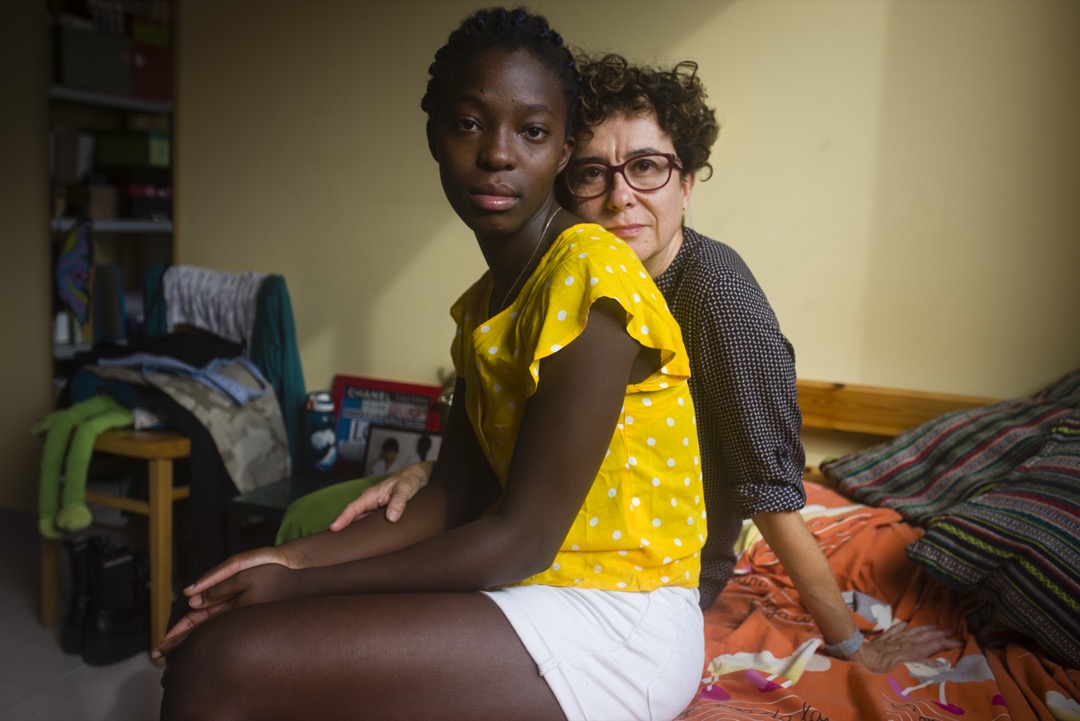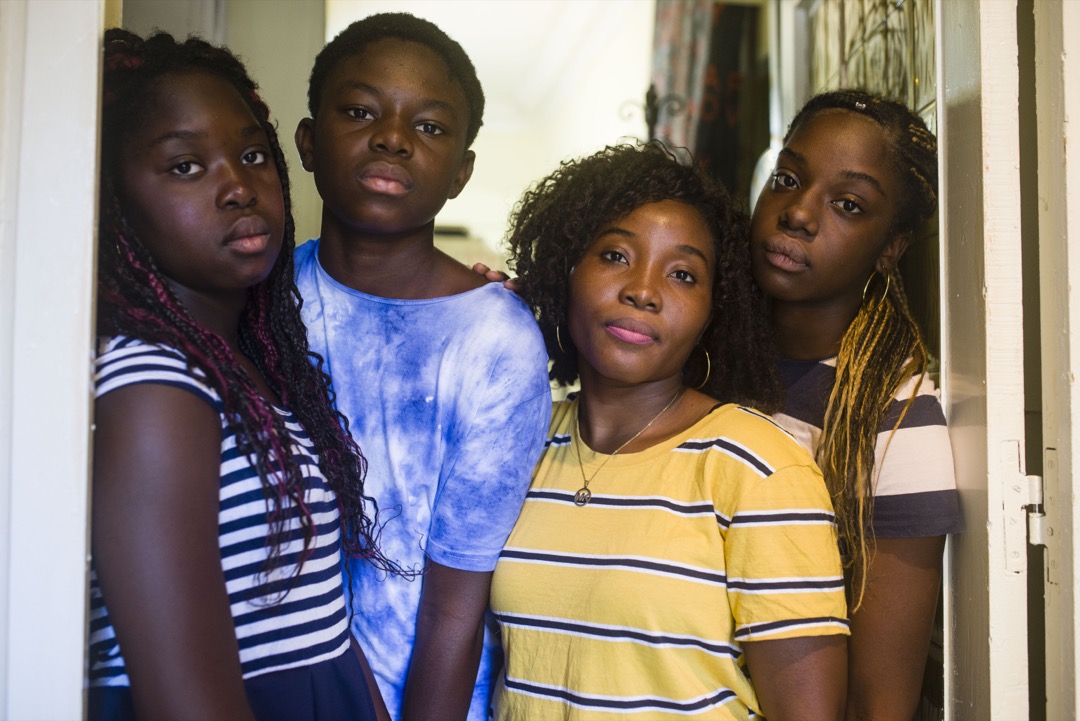Barcelona, Barcelona
18 Septiembre 2020
Motherhood alone during the pandemic
Loneliness and uncertainty are the two words that are repeated the most when a alone mother is asked what the quarantine meant to her. Single parenthood is presented as a family structure where only one of the parents takes care of the household responsibilities. Of the 18,535,900 households in Spain, which are collected in the 2018 Continuous Household Survey, 10.1% are single-parent households. These households are feminized: 82% of them are headed by a woman. In Spain, it is a type of family that is booming, there are 2% more single-parent households than the previous year. In monomarentality components of different nature converge and interact: family diversity, women’s historical asymmetries, job insecurity, feminization of care, and the sociocultural dimension in relation to social representations. “Traditionally, these mothers were stigmatized and not necessarily considered a type of family. The rate of risk of poverty and / or exclusion, (AROPE), indicates that half of single-parent households live in a situation of risk of poverty and social exclusion. According Save the Children, «the lack of these job opportunities, the wage gap or the inability to reconcile their personal and professional life very significantly affect women and their children who grow up in unequal conditions.» Currently, there is no law at the state level that addresses the specific needs of families. For FAMS «the configuration of public policies is designed from a biparental family model and this could be seen in all the measures during the state of alarm.» The COVID crisis has locked single mothers in four walls without specific measures that contemplate their situation.
Here have been collected honest stories of women, during an unprecedented confinement in full maternity alone. Interviewed and photographed in the atmospheres of the homes where they have been confined, the report shows the diversity of experiences.
This report was supported by National Geographic.

Cristina and Elsie Dantart pose for the camera in the latter’s room. Cristina adopted Elsie from Haiti. They are a monomarental family. During her quarantine, Cristina felt that her daughter had been triply confined, at home, in her room, in bed: “the hours passed and she was still in bed. I got very nervous, it was hard for us to find serenity, but we did it, «she says.
There are two million single-mother families in Spain that have been particularly affected by the Covid19 crisis.
Aina Paradede hugs her son, Salvador, in her hard-to-rent apartment in Barcelona. «Because you are a woman, you are discriminated against. But being a woman – mother and single discriminates against you even more», reflects Aina. Aina is a single mother without having decided: «I had to leave my ex’s house for the welfare of my son and own.» Her quarantine consisted of trying to telework with a 9-month-old baby: «I ended up hysterical crying and collapsed,» she confesses. Aina feels exhausted: «How do you sweep, how do you scrub? You are monomarental for everything. From the moment my son was born, I have survived the situation. If I look back, I don’t know how we cope. The maternity is collective, no one should maternal alone» .
In Spain there are 2 million single-mother families that were not taken into account during the COVID19 crisis.
Raquel Orgilles poses with her daughter Nora, gestated with assisted reproduction technique. «Hello, I am a monomarental mother, I am alone with a locked up baby, I cannot get there financially, physically I get dizzy, I am afraid of myself,» she told the emergency operator during the quarantine.
«Those first 3 months I was staying at 0 in the bank.» For Raquel the conciliation was complicated: «How do I telework as a waitress?»
There was a day when she was afraid: «She cried a lot. I went to the bathroom and bit my hand until it bled.»
Raquel says that
during the pandemic she has known the worst of her: «I was by a postpartum. Suddenly you are a mother, suddenly you are confined and suddenly you know what motherhood is. A bomb. I have passed two quarantines followed «.
In Spain there are 2 million single-mother families that were not taken into account during the COVID19 crisis.
Leonor Delgado poses with her son Emanuel in the room they live in in Barcelona. They have arrived less than two years ago requesting asylum from Nicaragua. Emanuel’s father is from Madrid, but he has never taken over his paternity. From that March 14 that the mandatory quarantine began, he remembers the questions that were now anchored in her life: “What are we going to do? How am I going to work? What are we going to eat? How am I going to pay for the room?» The first two weeks of confinement were the most stressful: “It led me to have more impatience with Emmanuel, I never hit Emanuel… there was a day when I felt so bad and I was so angry and upset… I felt like an aggressor”, she confesses crying. The most difficult night of the pandemic for Leonor, was the one in which her throat began to hurt: If something happens to me … if I die … what will happen to my Emmanuel? In Spain there are 2 million single-mother families that were not taken into account during the COVID19 crisis.
Lia Vazquez teaches her 8-month gestation belly. She decided to be a single mother through artificial insemination. She was pregnant with twins. Lia did not want to notify her at her company, so as not to suffer discrimination. When they decreed mandatory confinement on March 14, she «was losing a lot of blood, they had told me at the hospital that I couldn’t go back because it was dangerous to go out, that the only thing I could do was go home and wait for everything to go well. I did not know if I was carrying a baby, two baby, if there was life. I was afraid of the virus and maybe that would do more harm to the pregnancy. » Months later Lia gave birth to a baby girl. «The quarantine came to tell me that I could not control everything, would I have to get used. The pandemic was like training to be a mother,» says Lia.
In Spain there are 2 million single-moth that were not taken into account during the COVID19 crisis.
Pilar Pujol looks at the camera with her children Aleix and Gisele; and her mother’s cat, in Barcelona, Spain. Pilar is a single mother due to divorce. During the confinement, she had to isolate himself for falling ill with COVID. Pilar did not want to be hospitalized.: «I couldn’t, my 12-year-old son was alone at home, what do I do with him?» Pilar felt that no one was contemplating what the isolation of a single mother would be like without another person in charge. “The first days I couldn’t handle my soul. We were very lonely. He learned to cook by himself. He ate alone, ate breakfast alone, ate dinner alone, studied alone, all alone». A few days later, Pilar received the news that her mother had also fallen ill and had died of coronavirus.» Not being able to hug your children when your mother has died is very sad, » she says.
In Spain there are 2 million single-mother families that were not taken into account during the COVID19 crisis.
María Guitierrez, poses with her son Diego, at her home in Barcelona. They are a single parent family with no choice.
The pandemic meant a lot of stress for María. I started to get overwhelmed, I am a telemarketer, I answer emergency calls, and when I have someone who is lying on the highway I cannot say: wait there, I put my son’s milk and now I assist you «. María is for several hours on the phone and on the computer: «and my child wanders around the house doing nothing, lying on the couch day after day watching TV, he gets up late, I don’t have time to put him breakfast. The conciliation is very relative». As the days went by, María thought: “I don’t see the light at the end of the tunnel… when does this end? When will you be able to lead a normal life? How long will my child spend 6 hours a day lying on the couch watching TV?».
In Spain there are 2 million single-mother families that were not taken into account during the COVID19 crisis.
Nina Eriksen poses with her twins Eithan and Jared on camera. She decided to be a solo mother through assisted reproduction, on the advice of her mother: «You can do it without a partner, women are always alone in motherhood.»
During the isolation, she was angry: «It gave me the feeling that my pregnancy was stolen.» What most reminds you of giving birth in a pandemic is the feeling of loneliness. The postpartum days were difficult: «There I realized the mental burden for myself. My mother started to feel a lot of pain, but due to the pandemic, she did not have her medical visits». Last September, Nina’s mother was finally admitted and diagnosed. She suffered from undiagnosed terminal cancer.
«I became a mother while losing mine. Why has the coronavirus eaten everything?».
In Spain there are 2 million single-mother families that were not taken into account during the COVID19 crisis.
Yolanda Akpoli looks at the camera with her children Grace, Giovani and Gloria. She is a monomarental mother due to widowhood. For Yolanda, the big difference in being a single-mother immigrant mother is «the community», not having the support of friends or family. From the first days of quarantine she remembers the uncertainty. Yolanda lost her 3 cleaning jobs at the same time, that Monday that the mandatory quarantine began. “I remember having suffered from influenza A, which is not being able to breathe, and I didn’t want that to happen to them, I was especially afraid that Gloria would get sick» . Gloria suffers from birth defects. At the hospital they canceled the appointmentwith the nephrologist. What if something happens, what? What I do?». “As a single mother I lack support. But we are not poor why we don’t have a husband, nor do I like to be called a super woman»
In Spain there are 2 million single-mother families that were not taken into account during the COVID19 crisis.
Montserrat Linares poses with her children Hugo, Marcos and Leo, during a sunset in their apartment, in Sampedor.
At the age of 38, after divorcing, she had decided that she wanted to be a mother through assisted reproduction. This is how he formed his large family of 3.
Montse is a laboratory technician during the night shift: «I have many inconveniences, because the world is not set up for us, single parent families». Of the quarantine she remember:» as a professional Montse, I wanted to work. “After being with my children, feeding, breastfeed them, taking showers, I would cry. Getting sick worries me, because I am in a source of contagion. It has been a tough time and it will remain in the family forever marked. If the motherhood
you are overcoming obstacles, in pandemic even more ”.
In Spain there are 2 million single-mother families that were not taken into account during the COVID19 crisis.











